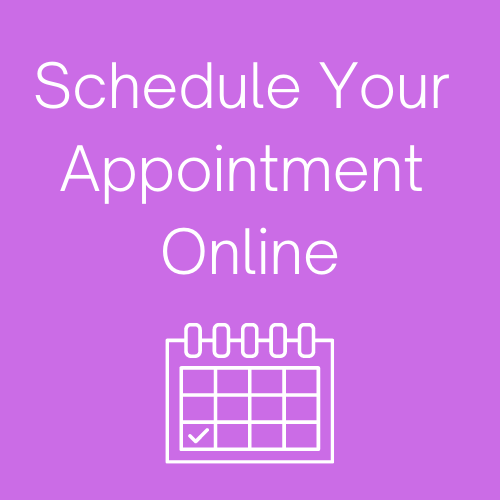When someone you love needs care, stepping up can feel like second nature. Whether it’s your mom who needs help getting around the house or your grandfather who struggles with daily tasks, family caregiving is one of the most selfless things a person can do. While we are dentists by profession, we also feel compelled to educate our readers on topics that can improve their everyday lives—especially when it comes to health, family, and overall well-being. That’s why we’re sharing helpful information on how you can get paid to care for a loved one.
What many people don’t realize is that, in some cases, you can actually get compensated for the caregiving you’re already doing. If you’ve been asking yourself, “How can I get paid to take care of a family member?” — you’re not alone, and you’re in the right place.
Let’s break down how family caregiving works, the programs you should know about so you can get paid to take care of a loved one, and what steps to take next.
Why Getting Paid as a Family Caregiver Matters
We’ve heard countless stories of people who had to reduce their work hours—or quit altogether—to care for a loved one full-time. Take Angela, for example, a single mom in New York who left her job at a law office to care for her aging father with Parkinson’s.
“I didn’t think twice,” she said. “But I also didn’t know how I’d pay my bills.”
Situations like Angela’s are all too common. Family caregivers provide an estimated $600 billion in unpaid care annually in the U.S., according to AARP. Getting financial support can make the difference between barely getting by and being able to fully focus on your loved one’s care without burning out.
1. Medicaid-Based Programs Are the Most Popular Option to Get Paid as a Family Caregiver
Consumer Directed Personal Assistance Program (CDPAP)
If you live in New York and your loved one qualifies for Medicaid, CDPAP is a powerful option. It allows Medicaid recipients to choose their own caregiver—and yes, that can be a family member (excluding spouses in most cases).
With CDPAP, caregivers get paid hourly, and there’s flexibility in tasks. Plus, unlike traditional home care programs, caregivers can assist with both medical and non-medical tasks—without needing a license or certification.
“FreedomCare has helped tens of thousands of families in New York and beyond. Our mission is simple: help families care for loved ones in a way that works for them—and get paid for it,” says a representative from FreedomCare.
FreedomCare works as a Fiscal Intermediary (FI) within the CDPAP model, meaning they handle the paperwork, payroll, and support so you can focus on what matters most.
Veterans Programs to Get Paid as a Family Caregiver
If your loved one is a veteran, there are even more options available.
Veteran-Directed Care (VDC) Program
This program gives eligible veterans a budget to manage their care, including hiring a family member as their caregiver. It’s available in many states through VA medical centers and is perfect for veterans who prefer aging at home.
Tip: Contact your local VA Medical Center and ask about VDC or “Veteran-Directed Home and Community-Based Services.”
Long-Term Care Insurance May Help You Get Paid as a Family Caregiver
Some long-term care insurance policies cover payments to family members who provide care, especially if the policyholder can no longer perform activities of daily living (like bathing, dressing, or eating). Review the policy closely or talk to a representative to confirm what’s covered.
Paid Family Leave (Short-Term)
Several states now offer paid family leave programs, which provide temporary compensation if you need to take time off work to care for a family member.
States with paid family leave programs include:
- California
- New York
- New Jersey
- Massachusetts
- Washington
- Connecticut
- Oregon (beginning 2025)
This isn’t long-term income, but it can bridge the gap during critical periods of care.
Tax Credits & Dependent Care Deductions
If you can’t access a formal program, don’t forget the IRS may offer a bit of relief.
If your loved one qualifies as a dependent and you’re providing care, you may be eligible for tax credits or deductions, including:
- The Child and Dependent Care Credit
- Medical expense deductions
- Filing as Head of Household (if applicable)
Speak with a tax professional to explore what you qualify for.
Private Pay from Family Members or Trusts
Some families set up formal caregiver agreements where one family member is compensated directly through personal funds, family funds, or a trust account. This often requires drafting a formal contract and may involve an attorney to ensure everything is documented properly.
This is especially common when an older adult wants to compensate a child for their time, but still qualify for Medicaid later—documentation is crucial here.
Licensed Home Care Services Agencies (LHCSA) Partnerships
If your state allows it, your loved one may be able to receive care through a Licensed Home Care Services Agency (LHCSA), which may permit a family member to become a paid caregiver through that agency.
In New York, for example, LHCSAs often work in coordination with Medicaid and Managed Long-Term Care (MLTC) plans. FreedomCare works with LHCSAs and handles the administrative burden for family caregivers, making the process smoother and faster.
How to Get Started Getting Paid as a Family Caregiver: A Quick Checklist
- Determine Medicaid Eligibility – If your loved one has low income and assets, they may qualify. Start by applying to your state’s Medicaid office.
- Explore Local Programs – Look into CDPAP (New York) or similar programs in your state.
- Contact an FI like FreedomCare – If you’re in a state where CDPAP or similar programs exist, companies like FreedomCare guide you through every step.
- Talk to a VA Rep – If your loved one is a veteran, ask about home care benefits.
- Document Everything – For taxes or private pay arrangements, keep a detailed log of care tasks and hours.
- Don’t Go It Alone – Support groups, local agencies, and organizations like AARP can be great resources.
Final Thoughts: Caring for Them Means Caring for You, Too
Caring for a loved one is one of life’s most meaningful acts—but it doesn’t mean you should go broke or burn out in the process. With the right information and a few proactive steps, you can secure the support and compensation you deserve.
And remember, services like FreedomCare exist to make this path easier. Whether you’re navigating CDPAP, working through an LHCSA, or exploring other care options, there is a way forward.
Start by checking your eligibility today — and take that first step toward becoming a paid caregiver for the one you love.



